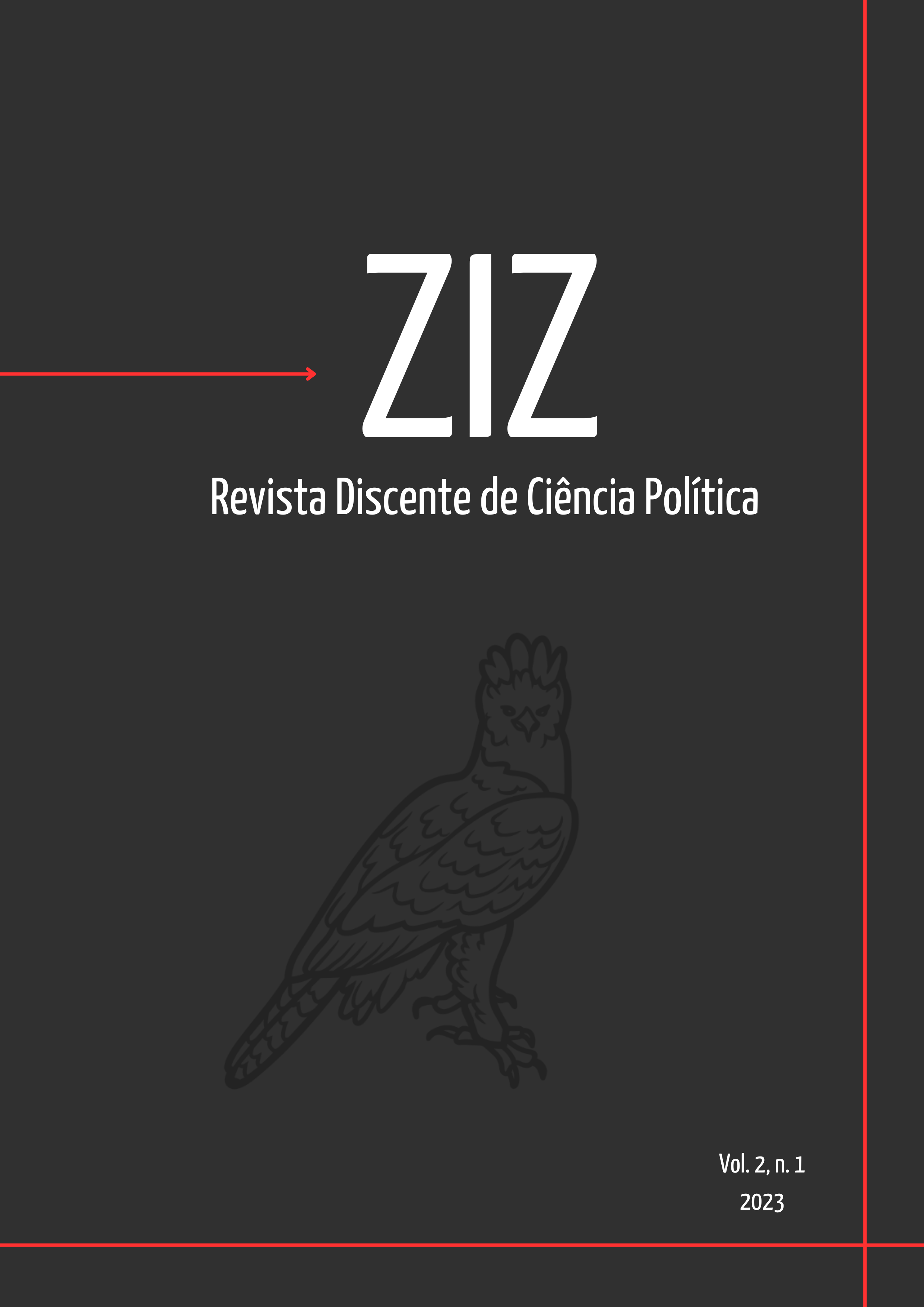Mídia e Democracia
Os Diferentes Papéis dos Meios de Comunicação de Massa nas Sociedades Contemporâneas
DOI:
https://doi.org/10.22409/ziz.v2i1.54300Keywords:
Democracia, Mídia, Agente Econômico, Esfera Pública, Partidos PolíticosAbstract
Abstract
This article, based on the literature produced by important thinkers who have studied and thought about the relationship between media and democracy, since its beginnings, presents a brief description and analysis of the main roles played by the mass media in contemporary societies. This is an attempt to describe and analyze how the mass media have silently assumed an almost absolute centrality in the daily lives of populations today. And when the expression “silently” is used here, it is because the media is so integrated into human activities that it is no longer perceived as such. In the first section there is the introduction, with the presentation of the theme with some historical information. In the second section, there is a description of the transformation of the media into private capitalist companies and its implications for their end functions in today's societies. In the third section, there is a description and analysis of the role of the main platform for the manifestation of the Public Sphere, exercised by the mass media and all its consequences. The fourth section describes and analyzes the influence of the media in weakening political parties as one of the main organizations representing civil society in the current representative democracy model. In the fifth section there are the final considerations, which conclude that the range of roles played by the mass media today is contradictory in relation to their end functions.
Keywords: Democracy, Media, Economic Agent, Public Sphere, Political Parties
Downloads
References
ALBUQUERQUE, Afonso de. Another “Fourth Branch”: press and political culture in
Brazil. Journalism 6 (4): 486-504, 2005.
BOBBIO, Norberto. Estado, governo e sociedade: para uma teoria geral da política. 2. ed. Rio de Janeiro, 1987.
BOURDIEU, Pierre. Sobre televisão. Rio de Janeiro: Jorge Zahar, 1997.
CASTELLS, Manuel. The rise of the network society. Oxford: Blackwell Publishing, 2000.
CHAMPAGNE, Patrick. La vision médiatique. In : BOURDIEU, Pierre. La misère du monde. Paris : Seuil, 1993.p. 61-79.
DAHL, Robert A. Poliarquia: participação e oposição. São Paulo: Editora da Universidade de São Paulo, 1997.
DIAS, Reinaldo. Ciência política. São Paulo: Atlas, 2010.
FONSECA, Francisco. Mídia, poder e democracia: teoria e práxis dos meios de comunicação. Revista Brasileira de Ciência Política, n. 6, p. 41-69, 2011.doi: 10.1590/S0103-33522011000200003
FONSECA, Francisco. Mídia e esfera pública: reflexões sobre o caráter mercantil, privado e liberal dos meios de comunicação de massa. Revista Communicare, v. 10, p. 45-57, 2010.
GHIGLIONE, Rodolphe ; BROMBERG, Marcel. Discours politique et télévision. Paris:
Presses Universitaires de France, 1998.
GOMES, Wilson; MAIA, Rousiley, C. M. Comunicação e democracia: problemas e perspectivas. São Paulo: Pulus, 2008.
HABERMAS, Jürgen. Mudança estrutural da esfera pública: investigações sobre uma categoria da sociedade burguesa. São Paulo: UNESP, 2014. Originalmente publicado em 1962.
HABERMAS, Jurgen. Direito e democracia: entre a facilidade e validade. Rio de Janeiro: Tempo Brasileiro, 1997.
HERMAN, Edward; CHOMSKY, Noam. Manufacturing consent. New York: Routledge, 1988.
HORKHEIMER, Max; ADORNO, Theodor. W. Dialectic of enlightenment. Stanford: Stanford University Press, 2002.
KANT, Immanuel. Paz perpétua. F. Nicolovius, 1795
LIMA, Venício A. Mídia, teoria e política. São Paulo: Editora Fundação Perseu Abramo, 2012.
LIMA, Venício A. Sete teses sobre a relação mídia e política. Revista USP, n. 61, p. 48-57, mar./maio 2004.doi: 10.11606/issn.2316-9036.v0i61p48-57
LIPPMAN, Walter. Public opinion. New York: Harcourt, Brace and Co, 1922.
MANIN, Bernard. As metamorfoses do governo representativo. Revista Brasileira de Ciências Sociais, n. 29, out. 1995. Disponível em: <http://anpocs.com/images/stories/RBCS/rbcs29_01.pdf>. Acesso em: 27 abr. 2022.
MIGUEL, Luís F. Retrato de uma ausência: a mídia nos relatos da história política do Brasil. Revista Brasileira de História, v. 20, n. 39, p. 190-199, 2000.doi: 10.1590/S0102-01882000000100008
MIGUEL, Luís F.; BIROLI, Flávia (Orgs.). Mídia, representação e democracia. São Paulo: Hucitec, 2010.
NORRIS, Pipa. The Watchdog role of journalists: Rottweilers, Alsatians or Poodles? In the Oxford Handbook of Public Accountability. Oxford University Press, 2012.
POPPER, Karl; CONDRY, John. Televisão: um perigo para a democracia. Lisboa: Gradiva, 1995.
PUTNAM, Robert D. Bowling alone: America’s declining social capital. Journal of Democracy, v. 6, n. l, p. 65-78, 1995. doi: 10.1353/jod.1995.0002
SANTOS, José R. O que é comunicação. Lisboa: Difusão cultural, 1992.
SARTORI, Giovanni. Homo videns: televisão e pós-pensamento. Bauru: EDUSC, 2001.
SARTORI, Giovanni. A teoria da democracia revisitada: o debate contemporâneo. São Paulo: Ática, 1994.
THOMPSON, John B. The media and modernity: a social theory of the media. Stanford: Stanford University Press, 1995.
WILLIAMS, Raymond. Resources of hope: culture, democracy, socialism. London; New York: Verso, 1989.
Published
Versions
- 2023-12-07 (2)
- 2023-12-07 (1)
How to Cite
Issue
Section
License
Copyright (c) 2023 Ziz - Political Science Student Journal

This work is licensed under a Creative Commons Attribution 4.0 International License.



